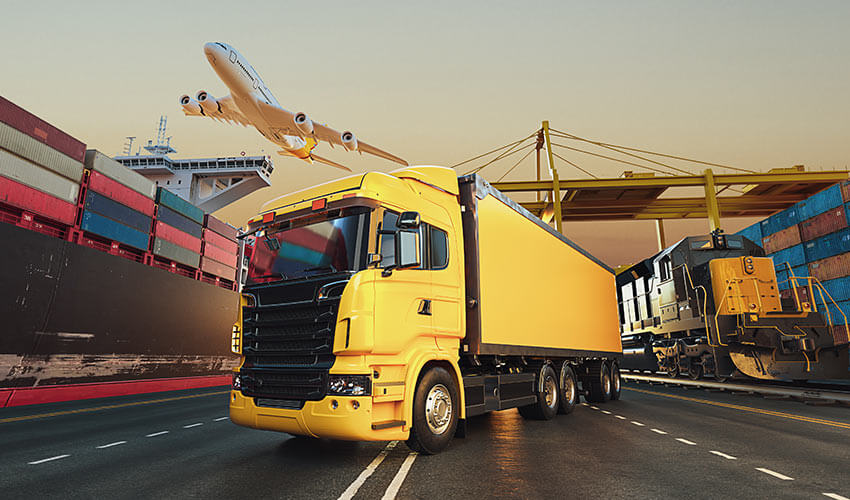
Unlocking Efficiency: The Dynamics of Road Freight in Modern Logistics
In the dynamic landscape of transportation and logistics, road freight emerges as a versatile and indispensable mode of moving goods. This comprehensive exploration delves into the nuances of road freight, highlighting its key advantages, considerations, and the pivotal role it plays in the movers and packers industry.
1. Introduction to Road Freight:
Road freight, commonly referred to as trucking or haulage, involves the transportation of goods via trucks or lorries over road networks. It is a ubiquitous mode of transport that provides flexibility, accessibility, and door-to-door service, making it a preferred choice for both short and long-haul shipments.
2. Advantages of Road Freight:
Flexibility and Accessibility: Road freight offers unparalleled flexibility, allowing goods to be transported to even the most remote locations with ease. The extensive road networks provide accessibility to areas that may be challenging for other modes of transportation.
Cost-Effective for Short Distances: For shipments covering shorter distances, road freight is often more cost-effective than air or sea transport. The ability to load and unload goods directly from the truck minimizes handling costs.
Timely Deliveries: Road freight provides reliable and predictable transit times, making it a preferred choice for time-sensitive shipments. The ability to navigate diverse terrains and road conditions ensures timely deliveries, crucial in meeting customer expectations.
3. Types of Road Freight Services:
Full Truckload (FTL): In FTL, a single shipment occupies the entire truck. This option is suitable for larger shipments that require exclusive use of the vehicle.
Less than Truckload (LTL): LTL involves combining multiple shipments from different customers in a single truck. It is a cost-effective solution for smaller shipments, offering shared transportation costs.
4. Considerations for Road Freight in the Moving Industry:
Route Planning: Effective route planning is essential for optimizing road freight operations. Movers and packers must consider factors such as traffic conditions, tolls, and road restrictions to ensure efficient and timely deliveries.
Vehicle Maintenance: Well-maintained vehicles are crucial for the reliability and safety of road freight operations. Regular maintenance checks, including inspections of brakes, tires, and engine components, are imperative to prevent breakdowns during transit.
Driver Training and Compliance: Ensuring that drivers are well-trained and compliant with safety regulations is paramount. Movers and packers must prioritize safety measures, including adherence to driving hours, to mitigate risks on the road.
5. Sustainability in Road Freight:
As environmental concerns take center stage, road freight is evolving to embrace sustainability. Many logistics companies are investing in fuel-efficient vehicles, exploring alternative fuels, and adopting eco-friendly practices to minimize the environmental impact of road transportation.
6. Technology Integration:
Technology plays a pivotal role in enhancing the efficiency of road freight. Real-time tracking, GPS navigation, and route optimization software contribute to better fleet management, increased visibility, and improved communication, ensuring a seamless experience for movers, packers, and clients alike.
7. Insurance and Risk Mitigation:
Given the inherent risks associated with road transportation, insurance is a critical aspect of road freight logistics. Movers and packers must work with insurance providers to secure comprehensive coverage, offering protection against potential accidents, theft, or damage during transit.
8. Partnering with a Reliable Road Freight Provider:
Selecting a trusted road freight partner is instrumental in the success of any logistics operation. Movers and packers benefit from collaborating with experienced carriers that prioritize reliability, safety, and on-time deliveries, fostering a seamless and trustworthy transportation network.
9. Regulatory Compliance:
Navigating the regulatory landscape is crucial for road freight operations. Movers and packers must stay informed about transportation regulations, licensing requirements, and any changes in legislation to ensure compliance and avoid disruptions in the supply chain.
10. Conclusion:
In conclusion, road freight stands as a cornerstone in the movers and packers industry, providing a cost-effective, flexible, and reliable solution for transporting goods. Its adaptability to various shipment sizes, accessibility to diverse locations, and evolving technology make road freight a vital component of the modern logistics chain. As the demand for efficient and sustainable transportation solutions continues to rise, road freight remains a driving force in meeting the evolving needs of businesses and individuals alike. Choosing a reputable road freight partner is key to unlocking the full potential of this dynamic and essential mode of transportation.
Thank you for considering Skyline Movers and Packers for your moving and packing needs. Whether you're relocating your home or business, we understand that every move is unique, and our dedicated team is committed to ensuring a smooth and stress-free experience for you. If you have any questions, requests, or would like to discuss your upcoming move in detail, feel free to reach out to us. Your satisfaction is our priority, and we're here to assist you every step of the way. Contact us using the details below, and let's start planning your hassle-free move!
+971 50417 3512
